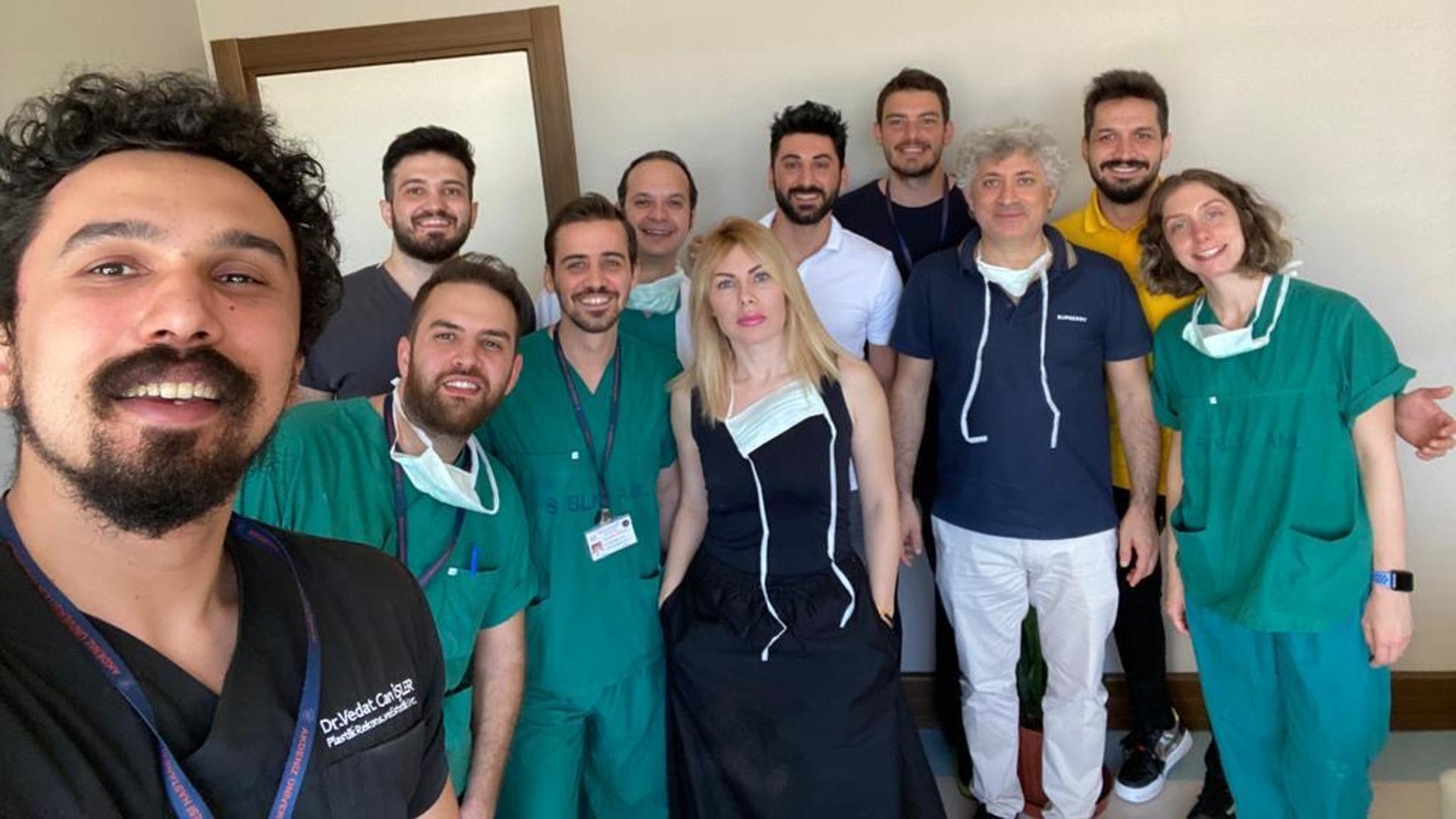“God bless him, we have a child thanks to him,” Mustafa Sert tells TRT World. The doctor he is referring to is Prof Dr Omer Ozkan of Akdeniz University, a surgeon specialising in plastic and reconstructive surgery.
Mustafa Sert, 37, and his wife, Derya, have been married for 11 years – she was born without a uterus. According to Dr Ozkan, this is a rare condition seen in one in every four or five thousand women.
In August 2011, at the age of 23, Derya Sert received a uterus from a cadaver, Dr Ozkan tells TRT World. Previously there had been attempts to transplant live uteruses into women without them, for example in 2000 in Saudi Arabia for the first time, but they did not succeed.
Derya was the first woman whose uterus transplant operation was successful, and after nine years, she and her husband Mustafa were finally able to embrace a baby son, whom they named after the doctor who treated her: Omer Ozkan Sert.
The baby, born at 28 weeks via C-section on June 4, 2020, is healthy and doing well, according to Dr Ozkan, who says he is unharmed by the medication the mother had been taking before and during the pregnancy.
Mustafa says the process was long and arduous, but thanks to the doctors who took care of his wife, they finally have realised their dream of having a family.
The team of doctors, led by Dr Ozkan, have now removed the uterus so that Derya no longer needs to ingest the immunosuppressant drugs she had been taking in order to avoid her body rejecting the implant.
Asked whether Derya had to support the procedure with supplementary hormones, Dr Ozkan concedes she was naturally making enough to avoid it.

Turkey leads the way
Dr Ozkan tells TRT World that the success of Derya Sert’s operation in 2011 has paved the way for more operations around the world.
He says that there have been 30 to 40 more uterus transplants made since, and the teams performing them have all used the techniques developed at Akdeniz University in Antalya, Turkey. Dr Ozkan says there have been more than 10 babies born thanks to the treatment they pioneered.
Dr Ozkan says for the uterus transplant to Derya Sert, they have had to get special permission from the Ministry of Health, including clinical research permissions.
He says that while he is a plastic/reconstructive surgeon, in the future, the operations will be in the realm of obstetric surgeons. Dr Ozkan says he got involved because of the vascular surgery skills that were needed to carry out the transplant, which also meant creating a vagina for this particular patient who was born without one.
Derya Sert and her husband took advantage of in vitro fertilisation, using their own eggs and sperm, the so called “test tube baby” method.
Dr Ozkan says for couples in the same position as the Serts, options are otherwise limited to adoption or surrogate pregnancies – the latter of which is not allowed in Turkey or several other countries. He says that a uterus transplant can offer hope for many who wish desperately to have their own children.









Discussion about this post